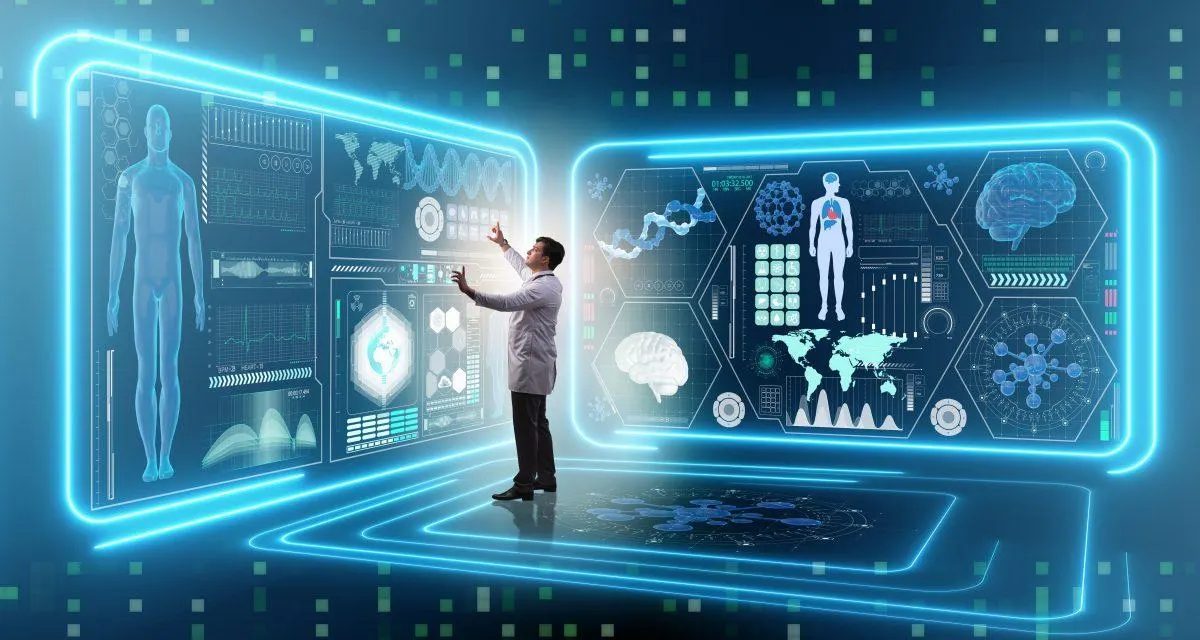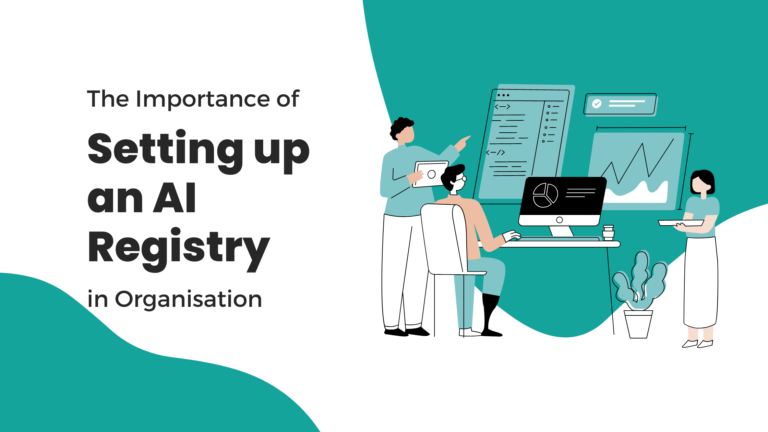Integrating artificial intelligence (AI) into the healthcare sector has ushered in a new era of possibilities, fundamentally altering the landscape of patient care, diagnosis, and treatment. This intersection of advanced technology and healthcare has sparked profound transformations, revolutionizing how medical professionals approach their work and patients experience healthcare services. As we delve deeper into the realm of AI in healthcare, it becomes increasingly evident that its impact extends far beyond mere convenience—it holds the potential to redefine the essence of healthcare delivery and outcomes.
The Emergence of AI in Healthcare
The emergence of AI in healthcare represents a paradigm shift, reshaping traditional methodologies and approaches to diagnosing, treating, and monitoring patients. AI’s ability to swiftly and accurately analyze vast amounts of clinical data empowers medical professionals to identify intricate disease markers and trends that may have previously eluded detection. From analyzing radiological images to mining electronic health records for predictive insights, AI fundamentally changes how healthcare is delivered and experienced.
The potential implications of artificial intelligence in healthcare are genuinely remarkable. AI in healthcare is expected to play a significant role in redefining how we process healthcare data, diagnose diseases, develop treatments, and even prevent them altogether. By using artificial intelligence in healthcare, medical professionals can make more informed decisions based on more accurate information – saving time, reducing costs, and improving medical records management overall. From identifying new cancer treatments to improving patient experiences, AI in healthcare promises to be a game changer – leading the way towards a future where patients receive quality care and treatment faster and more accurately than ever.
IBM’s Watson – Pioneering the Path
At the forefront of this AI revolution stands IBM’s Watson, a groundbreaking AI system developed to answer queries quickly and precisely. Since its inception, Watson has been instrumental in catalyzing advancements in natural language processing (NLP), a critical technology for interpreting human communication. By launching a healthcare-specific version in 2011, IBM set the stage for AI’s integration into the healthcare industry, laying the foundation for subsequent innovations by other tech giants like Apple, Microsoft, and Amazon.
The Potential of AI in Healthcare with a Multifaceted Approach
The potential implications of AI in healthcare are vast and multifaceted. AI is poised to redefine healthcare data processing, disease diagnosis, treatment development, and preventive strategies. One of the most prominent applications of AI in healthcare is machine learning, a versatile technique that has revolutionized medical diagnosis and treatment. By swiftly processing large volumes of clinical data, machine learning algorithms can identify patterns and make predictions with unprecedented accuracy. From analyzing patient records to discovering novel therapies, AI-driven machine learning drives tangible improvements in patient care and cost efficiency.

The most widespread utilization of traditional machine learning is precision medicine. Predicting what treatment procedures are likely to be successful with patients based on their make-up and the treatment framework is a giant leap forward for the data science of many healthcare organizations. Most AI technology in healthcare that uses machine learning and precision medicine applications requires medical images and clinical data for training, for which the result is known. This is known as supervised learning.
Artificial intelligence in healthcare that uses deep learning is also used for speech recognition in the form of natural language processing. Features in deep learning models typically have little meaning to human observers, and therefore, the model’s results may be challenging to delineate without proper interpretation. As deep learning technology continues to advance, it will become increasingly important for healthcare professionals to understand how deep learning technology works and how to effectively use it in clinical settings.
Natural Language Processing in Bridging Communication Gaps
Natural language processing (NLP) is another cornerstone of AI in healthcare, enabling computers to interpret and utilize human language effectively. In healthcare, NLP is revolutionizing various data applications, from enhancing diagnostic accuracy to streamlining clinical processes and delivering personalized patient services. By extracting valuable insights from medical records and predicting health risks based on historical data, NLP empowers medical professionals to make informed decisions and provide tailored treatments.
For example, NLP can be applied to medical records to accurately diagnose illnesses by extracting useful information from health data. It can also be used to identify relevant treatments and medications for each patient or even predict potential health risks based on past health data. Furthermore, NLP provides clinicians with powerful tools for managing large amounts of complex data—something that would normally take much longer to do manually.
Natural language processing is an invaluable tool in healthcare – allowing medical professionals to use artificial intelligence to more accurately diagnose illnesses and provide better-personalized treatments for their patients. This form of AI in healthcare is quickly becoming a must-have in the modern healthcare industry and is likely to become even more sophisticated and be used in a wider range of applications.
Expert Systems vs. Machine Learning
While expert systems based on rule-based approaches were prevalent earlier, machine learning algorithms have gradually emerged as the preferred choice for AI-driven healthcare solutions. Machine learning, particularly in precision medicine, holds immense promise in predicting treatment success based on individual patient characteristics and treatment frameworks. As machine learning advances, its integration into healthcare workflows is poised to improve diagnosis accuracy, treatment efficacy, and overall patient outcomes.

But whether rules-based or algorithmic, using artificial intelligence in healthcare for diagnosis and treatment plans can often be difficult to marry with clinical workflows and EHR systems. Integration issues into healthcare organizations have been a greater barrier to the widespread adoption of AI in healthcare compared to the accuracy of suggestions. Much of the AI and healthcare capabilities for diagnosis, treatment, and clinical trials from medical software vendors are standalone and address only a particular care area. Some EHR software vendors are beginning to build limited healthcare analytics functions with AI into their product offerings, but are in the elementary stages. To take full advantage of the use of artificial intelligence in healthcare using a stand-alone EHR system, providers will either have to undertake substantial integration projects themselves or leverage the capabilities of third-party vendors that have AI capabilities and can integrate with their EHR.
Challenges and Opportunities
Despite its transformative potential, integrating AI into healthcare is challenging. Data privacy and security, patient safety and accuracy, algorithm training, integration with existing IT systems, physician acceptance, and regulatory compliance are among the key hurdles that must be addressed. However, as these challenges are navigated and overcome, AI in healthcare promises a future characterized by improved health outcomes, enhanced patient experiences, and greater operational efficiency.
Patient safety and accuracy are also important concerns when using AI in healthcare. AI systems must be trained to recognize patterns in medical data, understand the relationships between different diagnoses and treatments, and provide accurate recommendations tailored to each individual patient. Furthermore, integrating AI with existing IT systems can introduce additional complexity for medical providers, as it requires a deep understanding of how existing technology works to ensure seamless operation.
Finally, gaining acceptance and trust from medical providers is critical for successfully adopting AI in healthcare. Physicians must feel confident that the AI system provides reliable advice and will not lead them astray. This means transparency is essential—physicians should have insight into how the AI system makes decisions so they can be sure it is using valid, up-to-date medical research. Additionally, compliance with federal regulations is a must to ensure that AI systems are being used ethically and do not put patient safety at risk.
Embracing the Future of AI in Healthcare
Looking ahead, the future of AI in healthcare appears promising, with boundless opportunities for innovation and advancement. From accelerating disease detection to personalizing treatment plans and automating administrative tasks, AI has the potential to revolutionize every aspect of healthcare delivery. By embracing AI alongside their expertise, medical professionals can unlock new frontiers in patient care, ushering in a new era of healthcare excellence.
AI streamlines various processes within healthcare facilities. From scheduling appointments to processing insurance claims, AI automation reduces administrative burdens, allowing healthcare providers to focus more on patient care. This not only improves operational efficiency but also enhances the overall patient experience.
The rise of AI in healthcare has been a gradual but steady journey, catalyzed by technological advancements and the increasing demand for improved healthcare delivery. Integrating AI into the medical field has shifted paradigms, making healthcare more efficient, accurate, and personalized. As AI technology continues to evolve, its role in healthcare is set to become even more significant, further solidifying its status as an indispensable tool in modern medicine. This journey of AI from a novel concept to a fundamental aspect of healthcare exemplifies a technological revolution, promising better health outcomes for all.
Conclusion
In conclusion, integrating artificial intelligence into the healthcare sector represents a monumental leap forward in the quest for improved health outcomes and patient experiences. With its transformative capabilities and potential to revolutionize traditional healthcare practices, AI is poised to redefine the future of healthcare delivery. As we navigate the challenges and opportunities, let us embrace AI’s promise in healthcare and work collaboratively towards a future where every individual has access to high-quality, personalized healthcare services.








